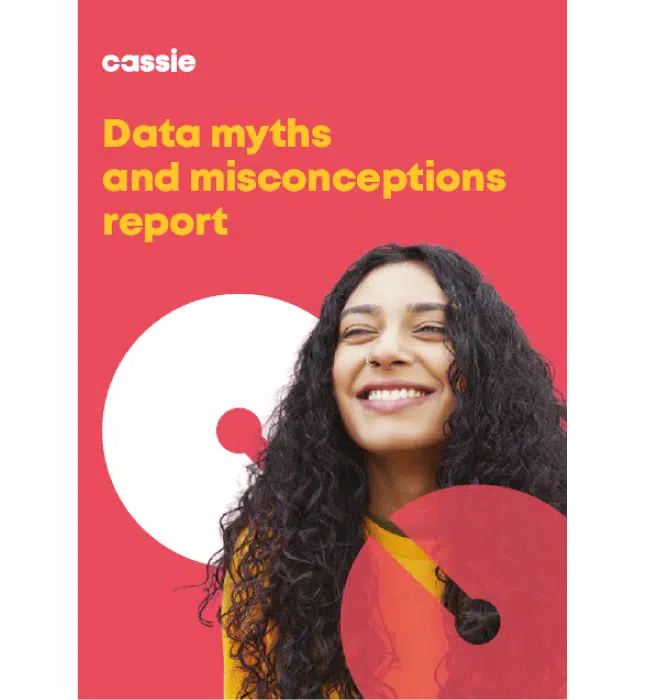Four lessons on building trust online from the Consumer Conditions Scoreboard 2023
Posted: April 19, 2023
The European Commission has released a report on its latest Consumer Conditions Scoreboard 2023 – a survey that explores how much people trust businesses.
A key part of the report examines online commerce, exploring how online practices around targeted advertising and cookies impact people’s trust.
For businesses operating online, some of the report’s findings make for difficult reading. Consumer confidence in how companies collect and use their data is very low.
Building trust is crucial to growing any business. We’ve selected four actionable findings from the report and considered how businesses can use transparency and consent to resolve these issues.
94% of people are ‘concerned’ about targeted ads
The report notes that “the share of consumers raising concerns about online targeted advertising is very high: 94%”.
The 94% figure remains unchanged since 2018. However, this is interesting in itself.
Since early 2018, businesses have invested billions in complying with the EU and UK General Data Protection Regulation (GDPR), the California Consumer Privacy Act (CCPA), and other data protection and privacy laws.
These laws were designed partly to improve consumer trust in online commerce. But despite huge changes to the law and the digital advertising industry, consumers remain overwhelmingly concerned about how companies use personal data for advertising purposes.
This could suggest that there are issues with how businesses approach data protection and privacy laws, and might not be providing people with an informed choice regarding how their data is used.
70% of people worry about the ‘use and sharing’ of personal data
The Commission’s report finds that 70% of people who shop online are concerned about the “use and sharing” of personal data, and 66% are concerned about the “collection of online data”.
These findings were based on the following survey questions:
- Which, if any, of the following concerns are very important to you personally regarding online targeted advertising?
- Your online data is collected/ a profile is made about you without you knowing it or explicitly.
- Your personal data could be used for other purposes and/or you don’t know with whom it might be shared.
There could be several reasons that people raise these concerns.
Consumers might believe businesses collect and use their personal data without consent. Or some people might suspect that companies are not transparent about how they use personal data.
Businesses could resolve these concerns by:
- Building long-term, trust-based relationships with consumers.
- Asking for consent in a clear and trustworthy
- Being transparent about what they will do with any data they collect.
More than half of people are concerned about cookies
Over half of the respondents (57%) were concerned about cookies. The survey did not ask any specific questions about why people were concerned or what they understood about cookies.
Cookies are just one way of collecting personal data online. However, this report provides further evidence that cookies can impact consumer trust.
The report cites 2022 research finding that 37% of websites employ “dark patterns” in cookie banners—manipulative design techniques intended to trick users into providing consent.
Again, transparency and consent could resolve these concerns. If businesses request cookie consent in a clear, transparent, and non-intrusive way, they might start to regain consumer trust.
People trust companies that efficiently resolve complaints
Around a quarter of consumers felt they had reason to complain to a business throughout the survey period. And the report found that a company’s ability to resolve complaints impacts consumer trust.
There is a lesson here that goes beyond complaint handling. Businesses have an opportunity to build trust when a person:
- Asks about how the business uses personal data.
- Requests to withdraw their consent.
- Submits a request to access or delete their personal data.
Building consumer trust goes beyond marketing and brand identity.
A company can also develop trusting relationships via transparent policies and efficient processes for handling data protection and privacy requests.

Learn how to win consumer trust by understanding their concerns about data privacy.
Read our latest research US research report on data myths and misconceptions to discover what US consumers think about online data security. The report covers the most effective data protection measures, levels of awareness regarding data collection, and consumer knowledge of data privacy legislation.
Download the report now and start building consumer trust today!

